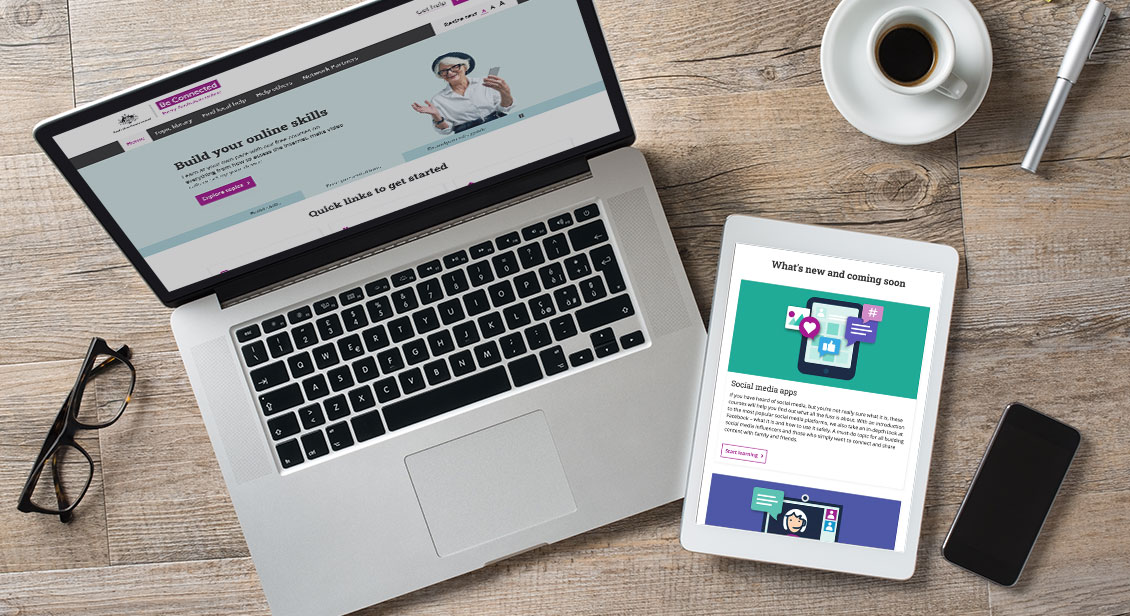General

Tablet vs laptop — which should you choose?
Thinking about buying a tablet or laptop but can’t decide between the two? When you are investing good money into buying a new device, you want to make sure it’s the right decision. Ultimately you can’t go wrong with either a tablet or a laptop, but there are times when one works better than the other.
Tablets sit somewhere in between a smartphone and a laptop. They are best used for things like browsing the web, watching videos and checking email, while laptops are designed to do so much more.
To help you decide, think about what you want to use your new device for. Do you see yourself doing a lot of typing, writing emails, or spreadsheet work? Or just generally browsing the internet? Do you want the device to use only at home, or do you plan to carry it around with you when you travel?
In this guide we compare some of the main features of tablets and laptops to help you decide which best suits your needs.
In this article:
Key features
Portability and size
Though both laptops and tablets are portable, tablets are smaller and lighter. They can easily fit into a magazine-sized handbag or be carried around on their own.
When it comes to screen size, tablets screens are smaller, but that doesn’t mean it’s harder to read the text on the screen. You can use your fingers to zoom in on small text to make it larger.
Something else to consider is the power supply or charger for your device. Laptop chargers are usually heavier and bulkier, while tablet chargers are usually around the same size as your phone charger.
Keyboard: with or without
Tablets have a touch screen, so they operate much like a smartphone (there is no keyboard or mouse). You can type by using the on-screen keyboard and use your finger(s) to tap the screen to make choices. If you find it frustrating to type with an on-screen keyboard, you can buy a separate wireless keyboard or a protective case with a built-in keyboard.
A laptop’s physical keyboard allows for a faster and more comfortable typing experience. It’s probably the better way to go if you plan on doing a lot of work that involves creating documents or working with spreadsheets.
Performance and storage
Laptops are generally more powerful than tablets and have more internal memory too.
Both tablets and laptops perform well when you are doing things like browsing the web, checking email and watching videos. But laptops start to overtake when it comes to more complicated things or multi-tasking.
Laptops have a larger internal memory which means they have more space for you to save things like photos and videos. Tablets may not have the same internal storage, but if you need extra space to store photos and files, you can use online storage solutions like OneDrive and Google Drive, or buy an external hard drive.
Battery life
Tablets usually have a longer battery life than laptops. That’s in part due to their smaller screen, but they have also been designed to use less power.
Some laptops can heat up when you use them which can make them uncomfortable to place on your lap, but there are laptop mats or pads you can buy separately to help keep your lap cool.
Security
There is some debate over whether one operating system is more secure than another, but it's safe to say they all have their good and bad points. More important however is the need for you to practise safe online habits to minimise online threats. There are a number of things you can do to keep your device secure like making sure you accept operating system and software updates, connect to secure Wi-Fi networks, run anti-virus software, and use strong passwords across your accounts.
Accessibility
Most devices have accessibility tools that can help you do things like use a screen reader to convert text into speech, change the font or display size, use voice to control specific actions, use a braille display or amplify sound or pair hearing aids. Both laptops and tablets have accessibility settings or software that allow you to choose options that work for you. The options available will depend on the device.
Apple or Windows or Android?
Once you’ve decided whether you want a laptop or a tablet, you’ll have to choose which system you want, and by that we mean whether you want Apple, Windows, Android or Chromebook.
If you are stuck, you can use your current smartphone as a guide. For example, if you already have an iPhone, you may find it easier to use a Macbook laptop or Apple iPad as Apple products tend to work better together, and they share the same apps. However it’s not entirely necessary, your devices will still work if you don’t buy the same system.
It’s always a good idea to speak to family and friends to hear what their experience is with their own device, and even if you’re planning to buy your device online, visit a store to see the different types of model on offer so you can get a feel for weight and other features.
The final word
Tablets are compact, light and portable and best suited to things like browsing the web and watching videos. On the other hand, if you plan on using the device to do a lot of typing and work, then a laptop would probably work best.
Laptops Tablets - Larger screen
- Well-suited for writing, research, accounting-style tasks
- Better performance, more storage
- Lighter, more portable
- Convenient for travel
- Long battery life